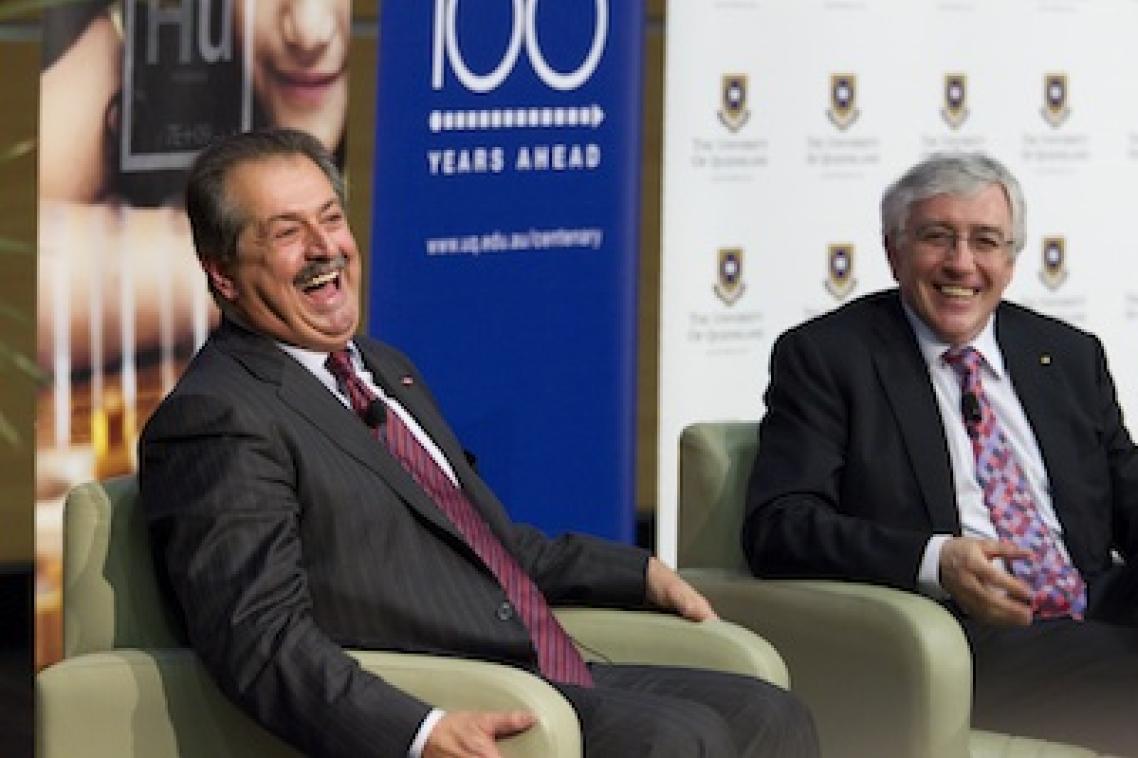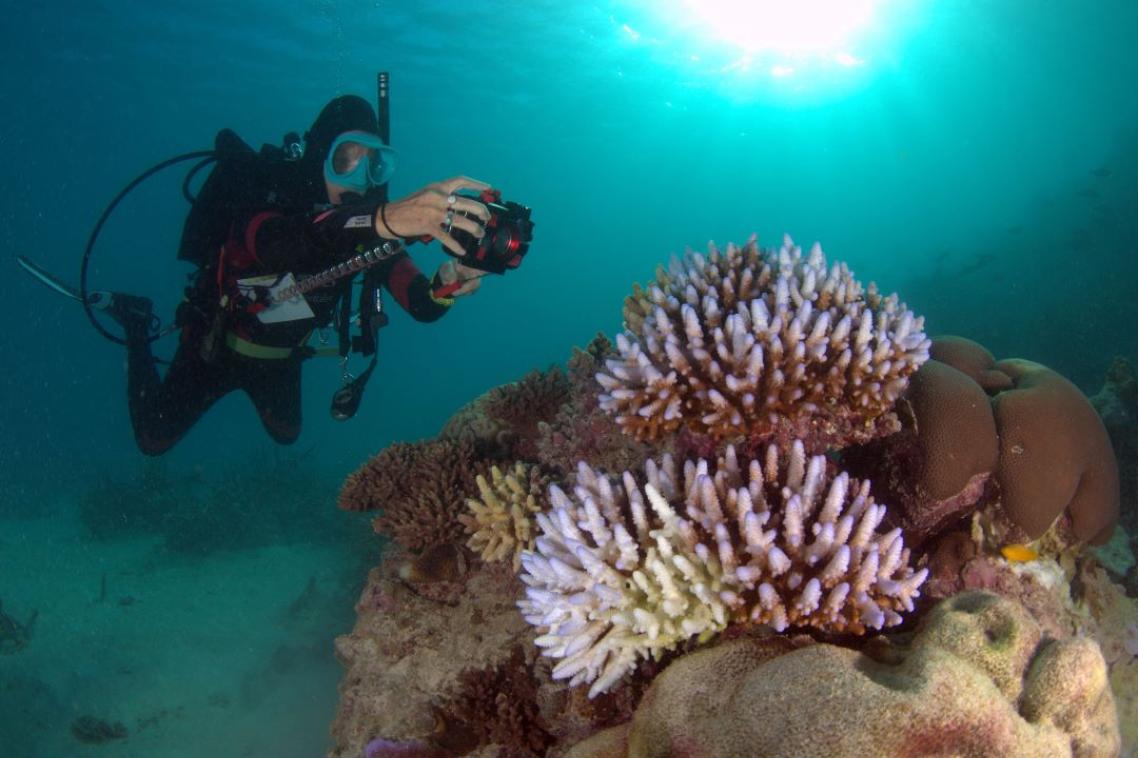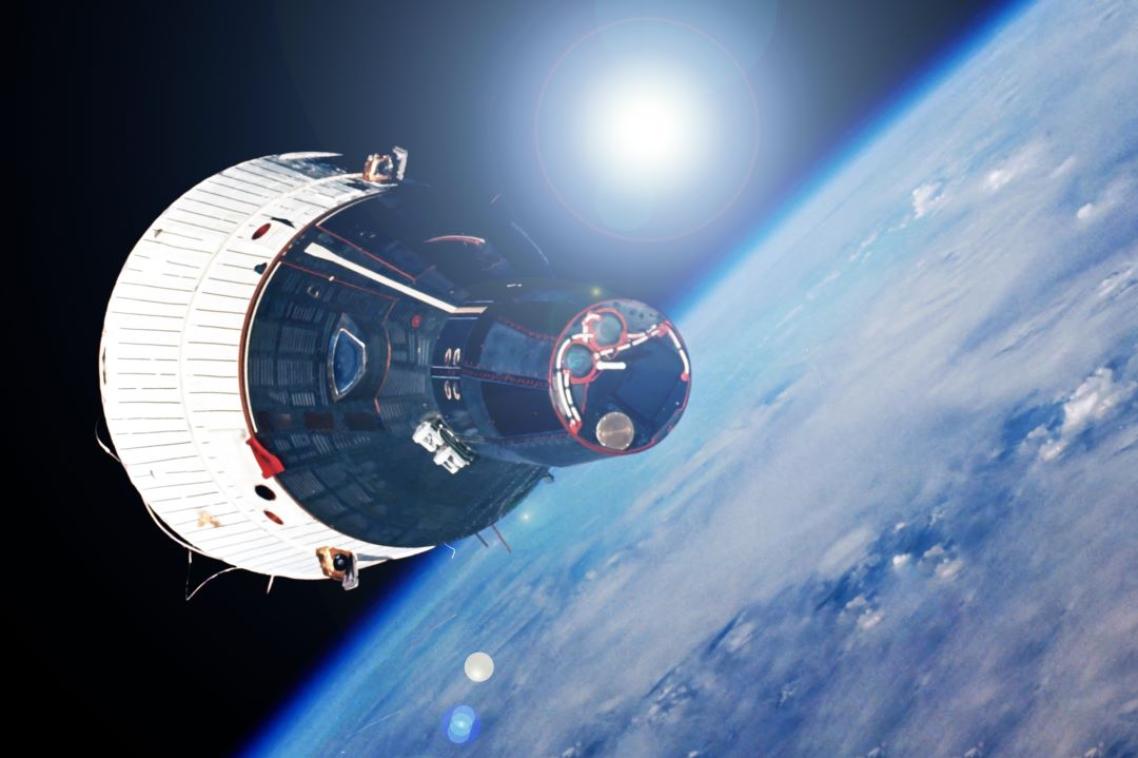Dow CEO says energy policy important for Australia’s next 100 years

The Dow Chemical Company Chairman and CEO, Dr Andrew Liveris, has called on Australia to keep more of its natural gas at home to turn into high value, high margin products.
Speaking at The University of Queensland (UQ) Centenary Oration Series last night, Dr Liveris, who is a UQ alumnus, described as "insanity" Australia's ongoing export of raw materials without more consideration of the value-adding possibilities.
“Keep more gas at home, build research partnerships with this and other universities, and you can create thousands of high-paying jobs – that will last through commodity price cycles, all while balancing the economy and attracting long-term corporate investment,” Dr Liveris said.
A comprehensive energy policy, new labour realities and innovative solutions – both scientific and in the policy realm – were key threads running through his talk on the next 100 years for Queensland, Australia and the world.
“If Australia were to think more long-term, if it were to dedicate some of that liquefied gas to feedstocks, rather than selling it off, it could expand the size of its chemical industry.”
“Already that industry directly employs 85,000 people in this country, but it would take just a few simple steps to dramatically increase that number.”
Dr Liveris said the Australian Government needed to develop business-friendly policies to encourage investment and to devise an immigration system that would attract people with the right skills for working in the advanced manufacturing industry.
“This will take work on key issues such as tax reform, energy policy, regulatory reform, and the cost of doing business. Every piece is essential to creating a globally competitive manufacturing sector that adds value to Australia’s indigenous resources,” Dr Liveris said.
Dr Liveris said innovation was the key to sustaining Australia’s economic growth and protecting the environment.
“Through innovation we can make transportation more efficient, and buildings more efficient, and in doing so, lower our energy usage,” he said.
“Through innovation we can develop safer and more efficient nuclear technology, just like Finland has done.
He also said, that innovation can develop the science to produce highly efficient solar cells that will help the environment and turn a profit, and build state-of-the-art hybrid batteries that will power vehicles while reducing carbon footprint.
“The days of Australia’s innovators and entrepreneurs leaving our shores to develop their technologies should be over. Australia should foster and encourage not one Silicon Valley, but several, each centered on great university hubs like this one.”
Dow and UQ’s Australian Institute for Bioengineering Nanotechnology (AIBN) yesterday signed a research collaboration agreement to focus on sustainable renewable energy storage systems and on the development of sustainable bioprocesses to produce non fossil fuel derived chemical building blocks of the future.
Dr Liveris graduated from The University of Queensland (UQ) with a chemical engineering degree in 1975 and took the helm of the $45 billion Dow Chemical Company in 2004.
The final UQ Centenary Oration will be delivered by UK-based cancer researcher, Professor Michael Stratton, on 7 December 2010.
For more information on The University of Queensland Centenary see http://www.uq.edu.au/centenary
Media: Kathy Grube at UQ Communications (07 3346 0561 or k.grube@uq.edu.au)
Related articles

Thousands of Queensland reef photos lead to worldwide change

UQ to conduct world-first tests into effectiveness of magnetic heat shields for atmospheric re-entry of large spacecraft
Media contact
UQ Communications
communications@uq.edu.au
+61 429 056 139
